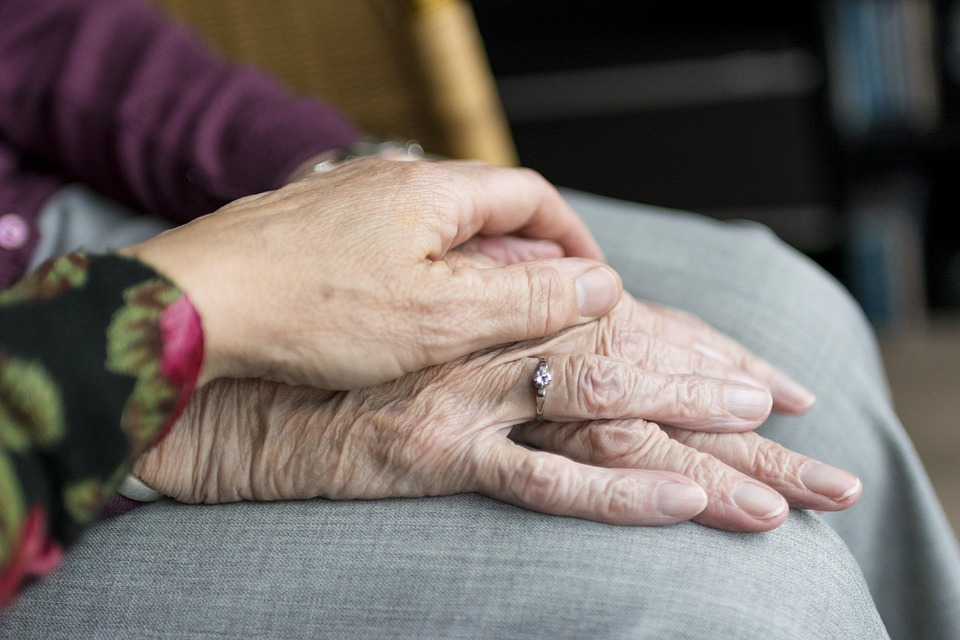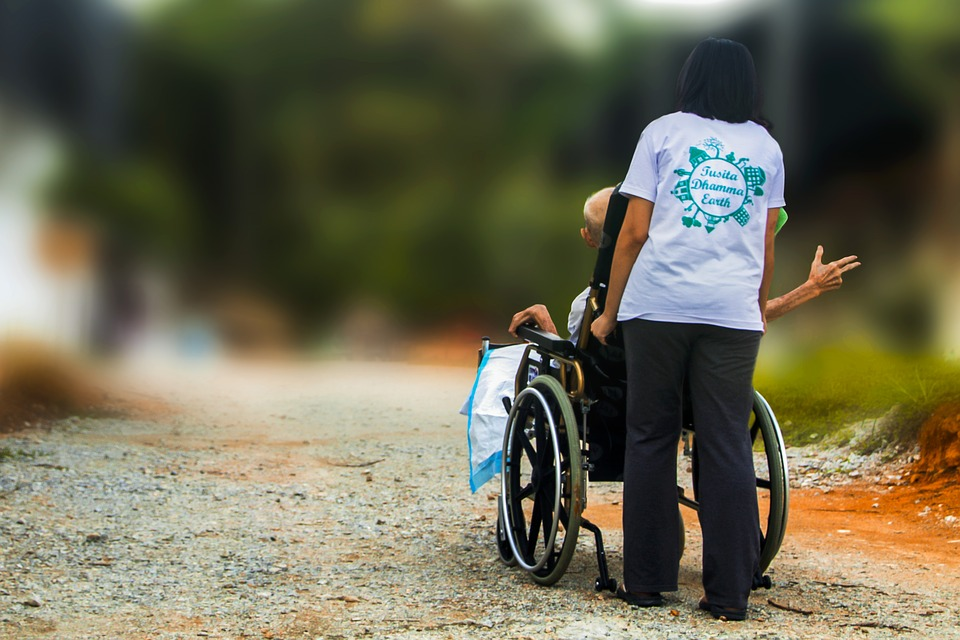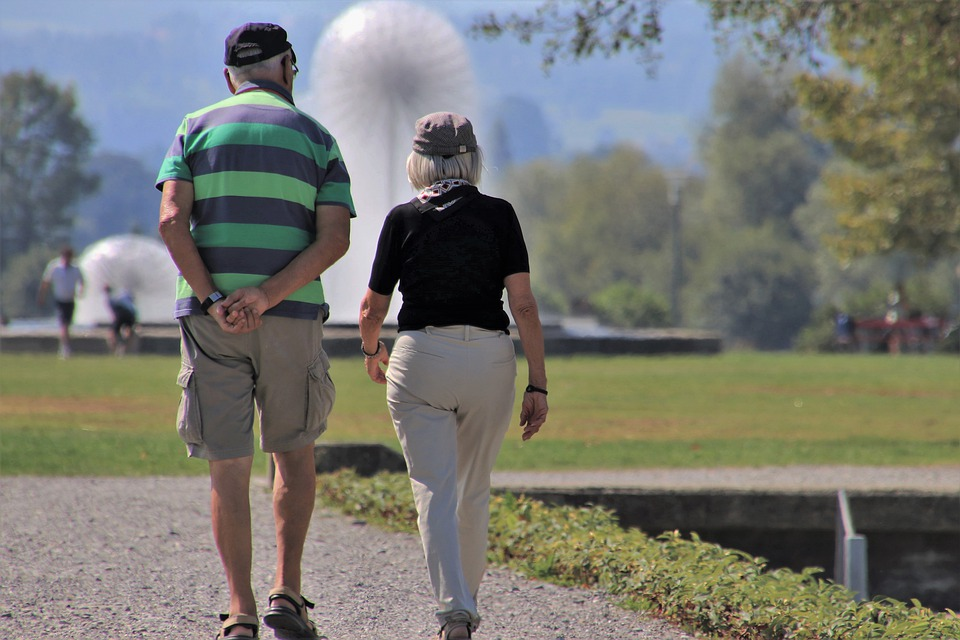Senior Care: Important Things That You Should Know To Make Them Happy
One of the key distinctions between humans and irrational animals is that we have, or at least should have, a very clear need and way of taking care of our elderly.
Author:Daniel JamesReviewer:Karan EmeryMay 13, 202120.6K Shares1M Views

One of the key distinctions between humans and irrational animals is that we have, or at least should have, a very clear need and way of taking care of our elderly. While most animals will let their older members die alone and in pain, we at least have the instinct to help them for as long as we can.
Our elderly parents’ and grandparents’ happiness doesn’t have a price, but there are some things money can make much easier, and a lot of other things that only require our patience and concentration. Working with seniors can be hard, as they can sometimes be childish, or grumpy, or just too ill for us to help them, but here’s what you can try and do.
What To Look Out For?
When living or caring for seniors there are a few things most people will encounter, that normally show up due to old age. For starters, there is a whole range of health problems such as weakened bones, loss of sight and hearing, becoming oblivious to surroundings, and many more. These things will primarily define what you have to do around seniors and whether professional help is needed.
As people get older they are naturally more prone to disease because of a weakened immune system and should go to the doctor more often. If they don’t have a habit of doing so, or if they are afraid of the results, you should motivate and help them go. Looking out for these common illnesses, such as cancer, can give you a better chance of spotting them early and finding proper treatment on time - something that guarantees a pain-free life.
Senior Homes
A critical resource in providing a happy lifestyle for the elderly in senior homes. We clearly see that a lot of working people don’t have the time, but also the knowledge, to devote themselves to their beloved seniors as much as they should. That is why there is a large network of both private and public institutions developed to cater to those needs.
In Australia, where an aging population might become a serious problem in the decades to come, there are many senior homes to choose from. Highly ranked ones such as Arcare, which pay close attention to how their living facilities are built and organized, can be a bit pricey but are ranked so for a reason. Other, smaller, and privately owned elderly-care centers may be closer to where you live, which is a great plus for regular visits but lack the professionalism of the aforementioned ones.
Combating Loneliness
Very important in terms of mental health is how their social life looks. We know that loneliness is contributing to depressionto a large extent and that in itself is a huge problem, not to mention how it can affect the rest of someone’s life. The main reason why seniors become lonely is that their social circle, friends, colleagues, relatives… pass away or become too ill to meet often. Apart from being very disturbing to see your beloved ones die, it is also troubling because you are left with a feeling of “being alone in this world”.
The solution is, of course, simple. Pay attention to them and be there for them often. Talking, playing card games, listing old photo albums, and much much more, is easy to do but can bring a smile on their face in an instant. Being a part of a like-minded group is also very good for them, one more reason why an elderly-care home should be considered.
Living With Special Needs
Special needs in this regard are related to using walking aids such as wheelchairs, hearing aid, having trouble eating, etc. There are all sorts of issues that seniors face that should be adequately solved, and that need day-to-day attention. As some of these problems have very sophisticated solutions (as in, a wheelchair is a lot more advanced than a simple walking cane) you should probably have some technical know-how to be able to solve basic problems.
Knowing how to take apart or tighten a wheelchair is rather straightforward and can be done by almost anyone. So is helping some eat, if they have shaky hands for example, and cannot hold a spoon or fork securely. In that case, they should either be offered a straw, or you could give the meal to them, making sure not to make a mess over their clothes while doing so.
Give Them A Purpose
A will to live and thrive is hard to maintain if you don’t have anything to aspire to. For seniors this can be a real challenge - most of them are retired, don’t do sports, and don’t partake in competitive hobbies. And as this heartwarming example from Japanshows us, they will sometimes even be ready to risk their lives to be able to be “useful to society” once more.
A few senior-friendly activities that you can get them into are gardening, chess, and knitting. All of these activities don’t have a goal per se but give something they can strive towards and skill to perfect. Having the most beautiful garden, besting others in a game of chess, and making scarves and sweaters in any number of ways for the people they care about.
How To Deal With Dementia
With patience and tolerance. A very large number of older people suffer from dementia, and it is very likely that a senior you know does too. The key is not to be revolted by how forgettable they are, but to develop a system where you can quickly remind them of the important things in their life and not leave them disoriented.
Dementia is hardly treatable so best not to hope for a miraculous recovery, but for it not to become worse. And by working with them, making them remember, eat healthily and stay active is what will keep this horrible illness at bay and probably under control.
In any of these cases, we should be there for them the same way they were there for us when we were younger and needed help in another way.

Daniel James
Author
Daniel James is a distinguished gerontologist, author, and professional coach known for his expertise in health and aging.
With degrees from Georgia Tech and UCLA, including a diploma in gerontology from the University of Boston, Daniel brings over 15 years of experience to his work.
His credentials also include a Professional Coaching Certification, enhancing his credibility in personal development and well-being.
In his free time, Daniel is an avid runner and tennis player, passionate about fitness, wellness, and staying active.
His commitment to improving lives through health education and coaching reflects his passion and dedication in both professional and personal endeavors.

Karan Emery
Reviewer
Karan Emery, an accomplished researcher and leader in health sciences, biotechnology, and pharmaceuticals, brings over two decades of experience to the table. Holding a Ph.D. in Pharmaceutical Sciences from Stanford University, Karan's credentials underscore her authority in the field.
With a track record of groundbreaking research and numerous peer-reviewed publications in prestigious journals, Karan's expertise is widely recognized in the scientific community.
Her writing style is characterized by its clarity and meticulous attention to detail, making complex scientific concepts accessible to a broad audience. Apart from her professional endeavors, Karan enjoys cooking, learning about different cultures and languages, watching documentaries, and visiting historical landmarks.
Committed to advancing knowledge and improving health outcomes, Karan Emery continues to make significant contributions to the fields of health, biotechnology, and pharmaceuticals.
Latest Articles
Popular Articles

